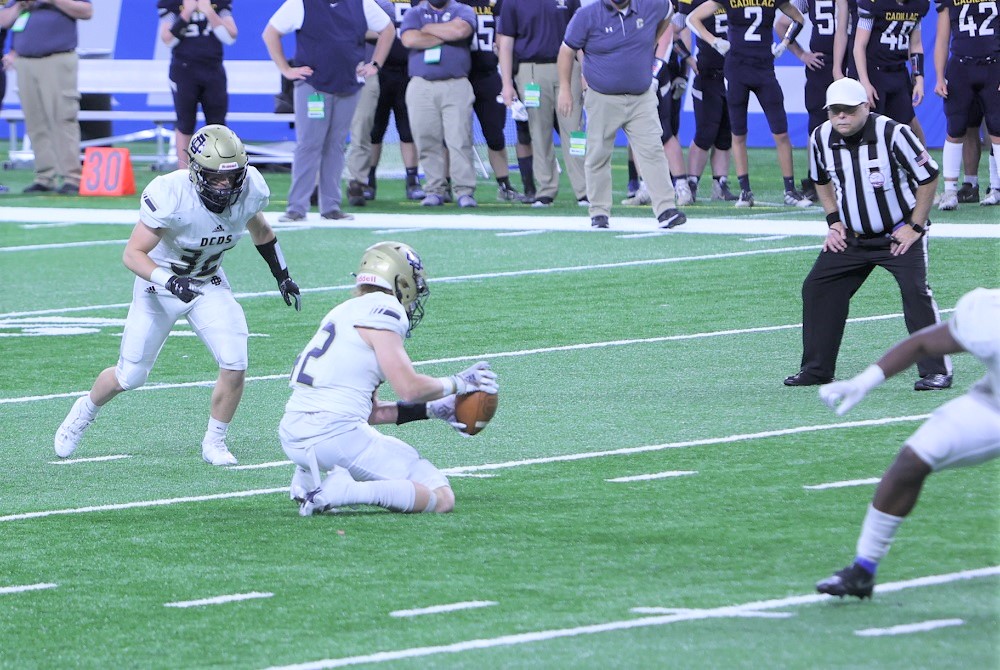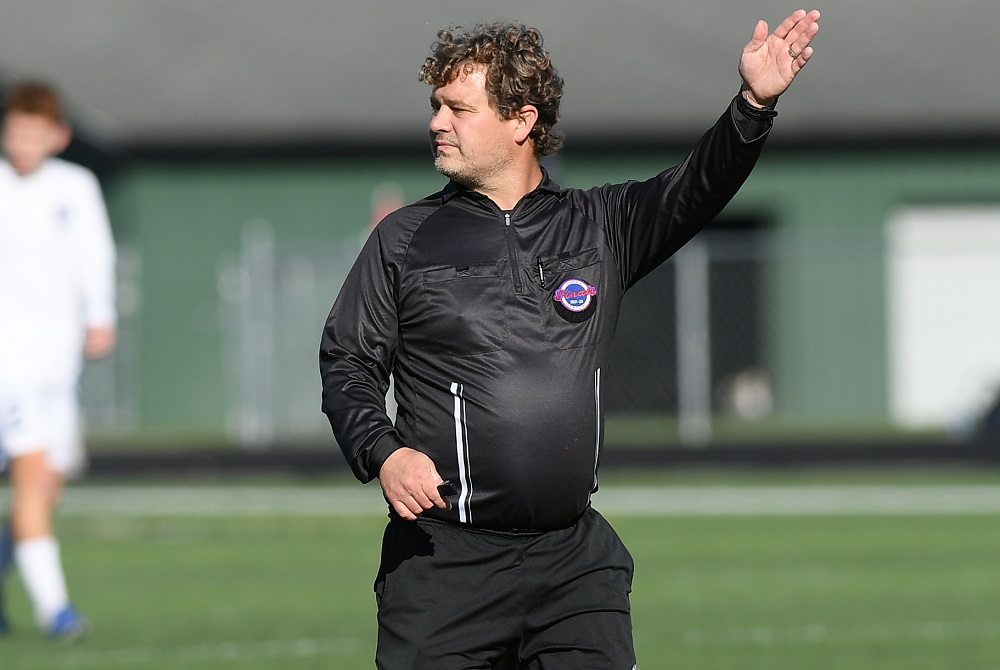
Be the Referee: Field Goal Falls Short
By
Sam Davis
MHSAA Director of Officials
September 30, 2021
Be The Referee is a series of short messages designed to help educate people on the rules of different sports, to help them better understand the art of officiating, and to recruit officials.
Below is this week's segment – Field Goal Falls Short - Listen
Three things can happen if a field goal attempt crosses the line of scrimmage but comes up short of the goal line. Do you know all three?
First, the ball can go out of bounds. If that happens, the ball is dead and on the change of possession, the team newly on offense takes over where the ball went out of bounds.
Second, the kicking team can be the first to touch the ball. When that happens, this is the first touching and again the team newly on offense takes over where the ball was downed.
And third, the receiving team can return the kick. And they would take over on offense after the returner has been tackled or goes out of bounds.
Think of a field goal attempt as a punt, and you’ll always know what’s possible if the kick comes up short of the goal line.
Previous editions
Sept. 23: Volleyball Obstruction - Listen
Sept. 16: Catch or No Catch - Listen
Sept. 9: Intentional Grounding – Listen
Sept. 2: Pass Interference – Listen
Aug. 26: Protocols and Mechanics – Listen

Be the Referee: Soccer Timing
By
Sam Davis
MHSAA Director of Officials
September 20, 2022
Be The Referee is a series of short messages designed to help educate people on the rules of different sports, to help them better understand the art of officiating, and to recruit officials.
Below is this week's segment – Soccer Timing - Listen
One of the biggest complaints people make about professional soccer is never knowing how much time is really left in the game. The clock counts up from zero, and the referee can add time at their discretion.
But that’s not the case in high school soccer.
To start with, halves are 40 minutes, not 45. The clock starts at 40 and counts down. And when players are injured and the ball is not in play, the clock will stop and then restart when action is ready to continue.
In the last five minutes of the game, the clock stops for substitutions by the leading team, so a coach can’t stall by sending in a new player. When the clock hits zero and the buzzer sounds … the game is over. There’s no guessing how much added time there is – the end of the game is the end of the game.
Previous Editions:
Sept. 13: Volleyball Replays - Listen
Sept. 6: Switching Sides - Listen
Aug. 30: Play Clock - Listen
Aug. 23: Intentional Grounding Change - Listen

